- Home
- Douglas Niles
The Crown and the Sword tros-2 Page 7
The Crown and the Sword tros-2 Read online
Page 7
“Your reputation precedes you, Lord Marshal,” said the magic-using knight.
“I see that you arrived safely from Sancrist,” Jaymes said wryly. Moorvan flushed-the placid waters from Sancrist to Palanthas offered one of the most secure sea routes of Ansalon.
“Several of my companies are arriving shortly. I intend to have one of them join your units in the field,” the mage declared icily. “If they would be welcome.”
Jaymes nodded, his eyebrows raised. “I can use men who can fight-whether with swords or sorcery.”
“ Magic. Sorcery is the purview of those who do not honor the three moons,” Moorvan clarified. His hands danced before him, fingers entwining and untangling as if making a subtle demonstration. His eyes, cold and aloof, never left Jaymes’s face.
“In any event, by all means, send them to the front as soon as you can.”
“I believe, my Lord Marshal, that you were about to report to the lord regent about the state of affairs in the field. I should like to hear,” the wizard said softly. His eyes were warm now, even friendly, and Jaymes blinked, trying to assess the situation.
Then, with a shrug, he nodded and with a wave of his cigar, began to outline the situation: His three armies were gathering on the Vingaard, ready to strike a combined blow eastward in an attempt the break the siege of Solanthus. He described the placements of his forces and those of the enemy, as far as was known. He deliberately refrained from inviting their suggestions as to strategy.
In fact, the lord regent and his companions asked several perfunctory questions before surprising Jaymes by pronouncing themselves pleased with matters. Jaymes struggled to focus on their words, feeling that he was missing something-but what?
“Thank you,” du Chagne said. He stood, bowed, and gestured the lord marshal to the door. “Now if you will excuse us?”
Jaymes nodded, happy to leave. He departed the hall, collected his white horse from the stable, mounted the animal, and rode back toward Coryn’s house. His mind was strangely vacant; it was as though he were riding in a dream, unaware of his surroundings.
It wasn’t until he talked to Coryn later that he figured out what had happened.
The lord regent retreated to his private drawing room, lamplight gleaming from the windows of a single large room high up in the sprawling palace. This was the sanctuary du Chagne used to retreat from the myriad pressures, concerns, and complications of his office. The room was stoutly barred and when he was not present, securely locked. Whenever he was here, two burly axemen-lifelong veterans of the Palanthian Legion, sworn to serve du Chagne-stood on guard outside the door.
Inside the room were three other men. The temperature in the drawing room was stifling, for the day had been hot and the flames of the many oil lamps added warmth to the chamber. Nevertheless, the lord steadfastly refused to open the windows, and his guests, each a trusted subordinate, had long ago learned not to ask.
“They spy upon me whenever they can!” said du Chagne. “The White Witch seeks to know my every plan and intention, and the marshal has agents everywhere in the city-I’m sure of it! This is why I had you inspect, by magic, every inch of this room!”
“Of course, Excellency,” Sir Moorvan replied in a soothing voice. “And there are no threats now.”
Du Chagne nodded, not entirely convinced. “Even so, we will open no window, allow no gap that will ease their espionage by a single whit!”
The other three men exchanged glances. Sometimes du Chagne’s excessive caution verged on the absurd. On this night, however, he had good cause for his paranoia.
“The lord marshal arrived in the palace this evening, hours ago.” The chubby, balding regent continued to fume, pacing back and forth before one of the lofty windows. He was staring at the third man, the high priest of the Knight Clerists, for the other two in attendance had been privy to Jaymes Markham’s presence in the palace.
Du Chagne stared out the window, his soft hands curling into fists. His city sprawled below him, mostly dark but brightened by the street lamps in the wealthier districts and by torches and other fires that glittered from tavern windows and from the guildhalls that were common gathering places. These were mere flickers in the vast, inky darkness.
A bell, probably on the temple of Shinare, dolefully tolled the eleventh hour.
“I must say he was insolent, contemptuous as usual. And he left only under persuasion-magical persuasion-from our Kingfisher here.”
Moorvan shrugged modestly. “I merely clouded his thoughts for a little while, causing him to forget why he had come here.”
“You cast a spell on him?” Inquisitor Frost, the Knight Clerist, expressed mingled surprise and admiration, but his expression was scolding. “Surely he will not let this insult go unchallenged!”
“Bah-I have greater things to worry about than insults to the lord marshal’s dignity,” the lord regent interjected snappishly. “He announced his intentions to see my daughter, and as soon as he comes out of his mental fog, he is bound to return!”
“My lord!” Lord Frankish leaped to his feet in unseemly agitation. “I must protest! He cannot be allowed to sully the reputation of the Princess Selinda!”
“No, I agree, Frankish. He certainly cannot. Who can guess his plans? He could at this moment be scheming to send some kind of secret message to my daughter. I admit she has had a soft spot for him, ever since he was acquitted of his crimes.”
“If you wish, my lord,” offered the Kingfisher. Sir Russell Moorvan was late of the order of White-Robed Mages but recently had been appointed as the new master of the order of Solamnic Auxiliary Mages-the Kingfishers. “It would be a simple matter to cast an enchantment such that we will be able to observe the princess in her chambers, here in the palace. If you could but provide me with a mirror, or even a bowl filled with clean water-”
“That’s enough!” squawked du Chagne. “Spying, spying! Too much spying. I will not have you spying on my daughter!”
“Very well. I apologize, my lord,” said Moorvan with a gracious bow.
“But we have to do something!” declared Lord Frankish peevishly. “The lord marshal grows too bold; he is a rogue and an upstart. Today he menaces your daughter. Tomorrow he may menace all of us. How do we know that he won’t bring his army over the mountains and lay siege to us after he has finished with Ankhar and Solanthus.”
“We don’t. And that is precisely why I have called you here tonight,” the lord regent said. “He must be stopped!”
“There are several ways we could proceed,” Moorvan began, choosing his words carefully. “Of course, public perception must be taken into consideration. And timing. But I suggest that while have an opportunity to, we act now, while he is here in Palanthas.”
“Can’t you just order him arrested?” asked Frankish. “He does represent the Army of Solamnia, after all, and as such, should be expected to hold to the traditions of the knighthood. Everyone knows he blatantly ignores the tenets of the Oath and the Measure. We could challenge him on his disgrace to the knighthood.”
“No,” du Chagne answered curtly, shaking his head. “Nothing would be more certain to inflame the people to support him.”
“Perhaps a more direct approach, then?” said the Kingfisher. “Some of my agents have, of necessity, established contacts with some of the more unsavory elements of our fair city-those who lurk in the darker sections of the waterfront. It has been reported to me, for example, that there is even a fledgling Assassin’s Guild taking shape…”
Again, du Chagne shook his head. “He is alert to treachery. I am familiar with a case-one of the late dukes was to blame, of course-where an assassin tried to waylay him. Even though Jaymes Markham was chained and a prisoner of the knighthood at the time, he succeeded in vanquishing the killer and making his escape. All around it was an embarrassment to those”-he coughed nervously-“involved.”
“Er, yes, I had heard something of that as well,” said the magic-using Kingfisher. “At the t
ime, he was suspected of being the Assassin of Lorimar, was he not? He’s a slippery one, that’s for sure.” He chuckled almost admiringly.
“Don’t you have anything to suggest, mage?” demanded Frankish.
“I suggest we continue to cast the lord marshal in an unfavorable light so that public opinion gradually turns against him. Your speech at the recent harvest festival, Excellency, did a nice job of laying the groundwork. The people grow weary from the long war; certainly, they are tired of paying for that war. And it is well known that the lord marshal rose to his current position without birthright, without noble entitlement.”
“No-unfortunately it was a matter of acclamation by the knights, after he had saved the army from Duke Walker’s ineptitude,” the Clerist said. “Really, it was a simple matter of momentary popularity. And he is certainly popular.”
“Unfortunately,” du Chagne said, “his popularity shows no signs of waning.”
“All the more reason why we should not delay. If he returns to the front, benefits from some good fortune on the part of his troops, some signal victory, the marshal will be the people’s darling.” Moorvan stood and paced. “That cannot be allowed. We must arrange to have him removed, at least from his position of power, and possibly more.”
“We decided that assassination is out of the question,” the priest noted dryly. “At least, this was His Excellency’s firm position!”
“Yes!” du Chagne said. “The risks-to us-are too great!”
The thin-faced magic-user gazed pensively at Lord Frankish. “You, my lord, are among those who would court the fair daughter of our regent, are you not?”
“The fact is well known! But what does that have to do with anything?”
“It’s just that… if anything should impugn the honor of the princess… well, it seems to me that she might need a loyal and accomplished champion to defend her honor. That might supply an honorable solution to this whole predicament.”
“You mean, take on Jaymes Markham in a duel?” demanded Frankish. He stood and paced toward the door. Dueling was rare in Palanthas, but it had a long tradition in Solamnic culture. It was structured around ritualized combat and frequently resulted in the death-or at least crippling-of the loser. It was a testament to the lord’s courage-and to the fervor of his interest in the Princess Selinda-that he did not immediately discount the idea.
“Do you think I could defeat him?” the Rose lord asked.
“You’re an accomplished swordsman, certainly.” It was the Kingfisher who spoke for the group. “Given matching weapons, a fair fight, you would have a very good chance.”
“But only a chance!” the Clerist protested.
Frankish stretched to his full height-he was a big man, broad shouldered and formidable-and addressed the lord regent. “I am not afraid of the marshal,” he said. “If it is your wish, my lord, that I issue this challenge-”
“I can’t afford to lose you!” snapped du Chagne.
“No, indeed, we-none of us-could afford to lose our esteemed General Frankish.” The Kingfisher spoke soothingly. His eyes narrowed as he scratched his chin, staring at Lord Frost. “My dear Clerist-would it be possible for you to research this matter in the temple archives? The last duel under the knighthood’s rule was many decades ago, but it would be useful to learn the nuances. You could clarify the rules and the risks.”
“Certainly, if it is my lord’s wish.”
“Please,” du Chagne said. “I would consider it a personal favor if you would investigate this matter at once.”
“Of course, my lord. It is my pleasure to serve.” The priest rose from his chair, bowed, and left the room. The lord regent spoke again as soon as the door closed behind him.
“Think, now! A duel is too dangerous. We need a better plan, something more assured of success.”
“Begging the lord regent’s pardon,” the Kingfisher said quietly. “I had not finished outlining my plan. But I don’t think we need bother the lord Clerist with the details.”
“Hmm, I see.” Du Chagne was intrigued. “Go on.”
“I think our Rose Lord Frankish could be furnished with the means to win this duel in a way that will remain undetected. As you know, part of the dueling ritual requires that opponents be armed with identical weapons, and that an impartial judge and at least two wizards are present to ensure that neither party makes use of any magical device.”
“Yes, I know all that,” the regent said impatiently.
The Kingfisher refused to be hurried. “I suggest that I cast upon our lord here a spell of haste, before the fight. If he is reasonably subtle in its employment, such that he limits himself to slight improvements in his normal reflexes, attack speeds, parries, and so forth, no one ought to notice the enchantment. But it will provide him with enough of an advantage that he could block every blow directed at him and-eventually, after putting on a convincing show for the judge-enable him to make the killing thrust. I didn’t feel the Clerist would care for my little subterfuge and thought it best to send him on a little errand while we discussed things.”
“Hmm, but what about the other wizard? The White Witch will surely be alert for any treachery.”
“A spell is not like a magical device. There is no detection she will be able to conjure that will indicate Lord Frankish is the beneficiary of a haste spell. It will depend upon your discretion, of course,” the Kingfisher noted, turning his attention to the lord. “If you move about in a blur, she will suspect-so, as I said, subtlety will be the key.”
“Can you do that?” asked the lord regent.
“Yes, of course!” replied Frankish. He stood and paced around the room, punching his fist into the palm of his hand. He whirled, shuffled his feet, almost as if he were mentally choreographing his movements in the duel. “I shall challenge him at the first opportunity.”
“Who will be the judge?” asked du Chagne.
“I do believe our colleague, the Clerist lord inquisitor, would serve well in that role,” declared Moorvan slyly.
The three men were silent for a long time, each lost in thought.
“The White Witch remains a danger to us,” said the lord regent, breaking the silence. “She will undoubtedly attend and be on the lookout for mischief.”
“I will seek her out after the challenge and suggest we attend together,” Sir Moorvan replied. “I can make sure that she finds no opportunity to cast spells of her own. She will neither detect the haste spell, nor influence the fight by magic. And by my invitation to attend, she will perhaps have her suspicions lulled.”
“Very well,” declared the regent firmly. “The matter is decided. Now, how do we initiate the plan?”
“There, too,” said the Kingfisher with a thin smile, “I have an idea…”
“From the look on your face, I will judge that your mission was unsuccessful,” Coryn said curtly. She had been seated behind her desk when the lord marshal returned to her laboratory, and after a curious look at Jaymes, she returned her attention to the thick tome she had been reading.
He merely shrugged and crossed the office to the cabinet where she kept several bottles of wine as well as a corked bottle of fine brandy. After a cursory inspection of the wines, he poured himself a generous draught of the dark liquor. Taking a sip, he turned to regard Coryn and saw that she had set her book aside and was looking at him speculatively.
“The wizard confounded me,” he admitted at last. “I never even noticed him casting his spell. But I departed without seeing the princess-without even remembering why I was there, in fact!”
“Sir Moorvan is capable of skullduggery, no doubt. But this is not too surprising. Will you return to your army now?” Coryn asked without a great deal of hope.
Jaymes glared at her. “No. This was a temporary diversion. I will go back there tomorrow, and if the magic-user tries to bewitch me again, I will run him through.”
“That would be taking matters to the extreme,” said the white wizard disapprovingly. She
stood and closed her book, returning it to the shelf. “Right now,” she said with a sigh of resignation, “we need to get some rest. You can use the same room you slept in last night.”
“We?” Jaymes asked warily.
She nodded. “Tomorrow, when you go to call on the lord regent and his daughter, I’m going with you.”
CHAPTER SEVEN
ARMY OF DARKNESS
‘We must get off this cliff-down there into dark,” insisted Laka, gesturing with her death’s-head totem. She glared at Ankhar and Hoarst when neither of her companions made any move to fling themselves into the apparently bottomless space.
The chasm was vast and eerie, utterly lightless yet somehow strangely alive. Every whisper they made, every scuff of feet or clink of a buckle, was amplified by the gulf of darkness. Ankhar felt the hair at the nape of his neck prickle, and could not suppress a growl. The half-giant clenched his great spear in both fists, brandishing the emerald head.
“Do you know what’s down there?” asked the Thorn Knight skeptically. “Or even how far it is to the bottom?”
“It doesn’t matter,” the shaman replied. “This is the way we must go. It is one reason you needed to come.”
“There is another reason as well, I presume?” the wizard wondered.
“Yes, but that is for later. First, you must get us down to the bottom of this great space.”
The Thorn Knight looked as though he were inclined to argue, but after a moment he nodded curtly. “I can do this,” Hoarst replied, addressing Ankhar. “But it will take courage. I must cast a spell upon you, my lord. You will need to trust in the magic, and to step off the edge of this precipice. The spell will guarantee that you float gently, like a feather, down to the bottom.”
“And my mother?” asked Ankhar.
The wizard shrugged, and there was just a glint of cruel merriment in his eye as he explained. “I have but the one spell. You will have to hold her in your arms and carry her with you.”

 Feathered Dragon mt-3
Feathered Dragon mt-3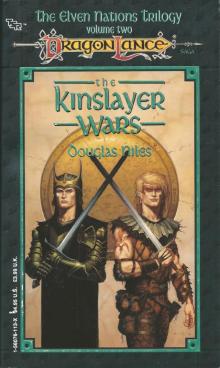 The Kinslayer Wars
The Kinslayer Wars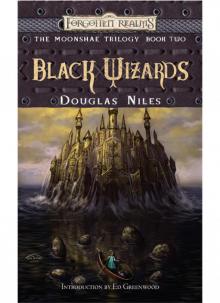 Black Wizards
Black Wizards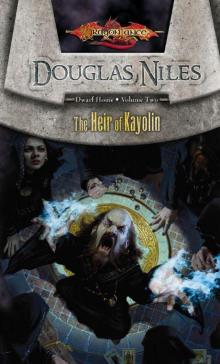 The Heir of Kayolin dh-2
The Heir of Kayolin dh-2 The Crown and the Sword tros-2
The Crown and the Sword tros-2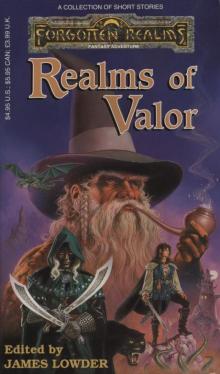 Realms of Valor a-1
Realms of Valor a-1 Wizards Conclave aom-5
Wizards Conclave aom-5 Fox On The Rhine
Fox On The Rhine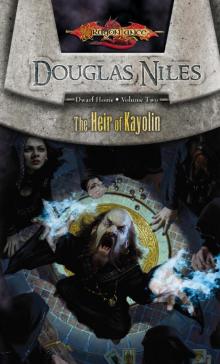 The Heir of Kayolin
The Heir of Kayolin Fox at the Front (Fox on the Rhine)
Fox at the Front (Fox on the Rhine)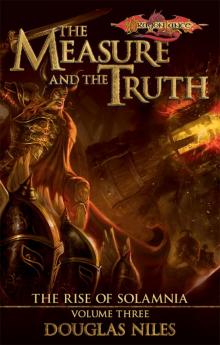 Measure and the Truth tros-3
Measure and the Truth tros-3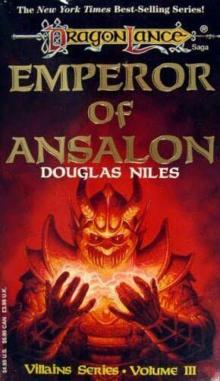 Emperor of Ansalon (d-3)
Emperor of Ansalon (d-3)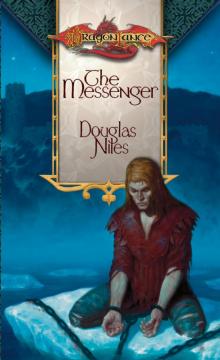 The Messenger it-1
The Messenger it-1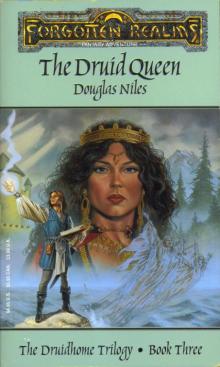 The Druid Queen tdt-3
The Druid Queen tdt-3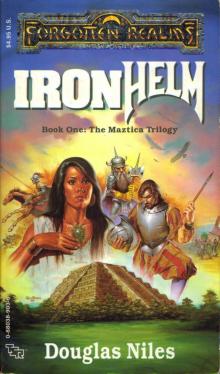 Ironhelm mt-1
Ironhelm mt-1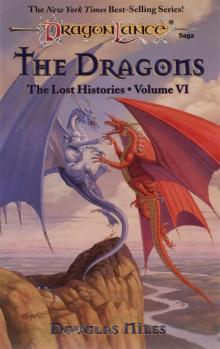 The Dragons lh-6
The Dragons lh-6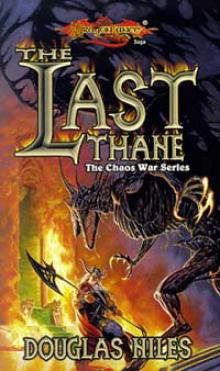 The Last Thane cw-1
The Last Thane cw-1 Circle at center sc-1
Circle at center sc-1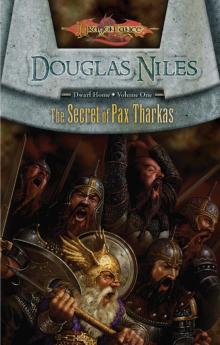 Secret of Pax Tharkas dh-1
Secret of Pax Tharkas dh-1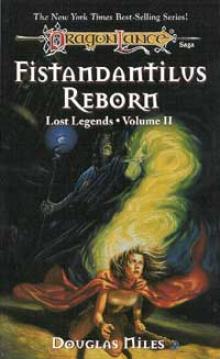 Fistanadantilus Reborn ll-2
Fistanadantilus Reborn ll-2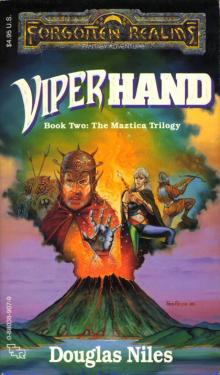 Viperhand mt-2
Viperhand mt-2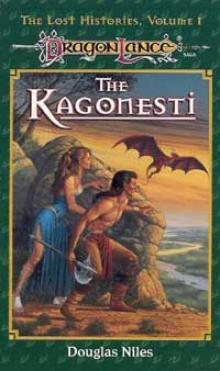 Kagonesti lh-1
Kagonesti lh-1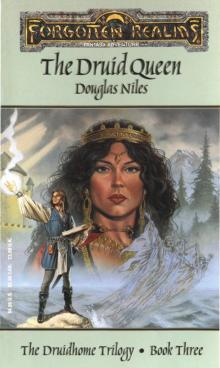 The Druid Queen
The Druid Queen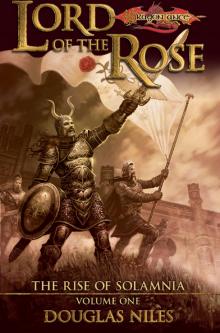 Lord of the Rose tros-1
Lord of the Rose tros-1 Goddess Worldweaver sc-3
Goddess Worldweaver sc-3 Eyeball to Eyeball (Final Failure)
Eyeball to Eyeball (Final Failure)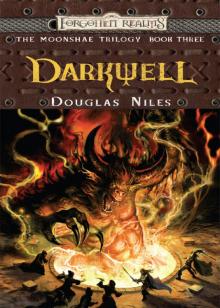 Darkwell
Darkwell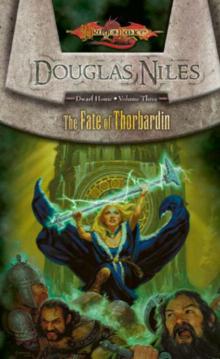 Fate of Thorbardin dh-3
Fate of Thorbardin dh-3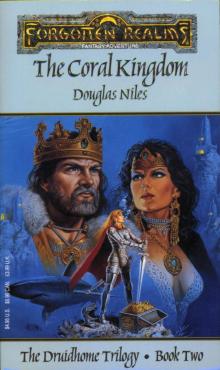 The Coral Kingdom tdt-2
The Coral Kingdom tdt-2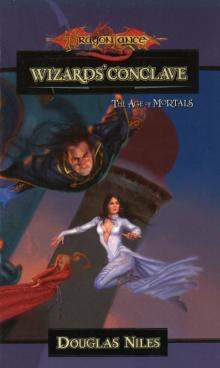 Wizard's Conclave
Wizard's Conclave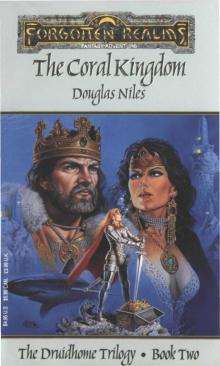 The Coral Kingdom
The Coral Kingdom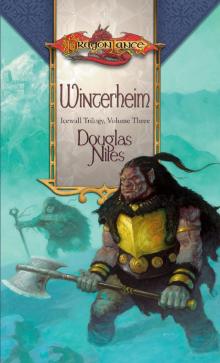 Winterheim it-3
Winterheim it-3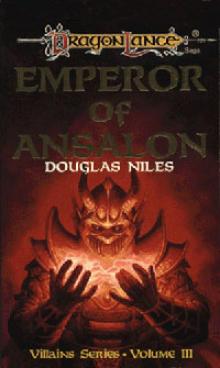 Emperor of Ansalon v-3
Emperor of Ansalon v-3 MacArthur's War: A Novel of the Invasion of Japan
MacArthur's War: A Novel of the Invasion of Japan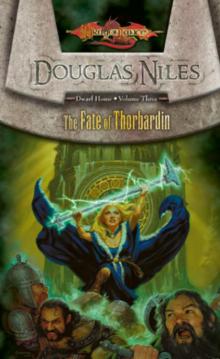 The Fate of Thorbardin
The Fate of Thorbardin The Rod of Seven Parts
The Rod of Seven Parts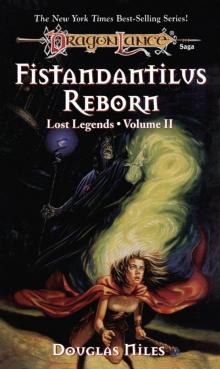 Fistandantilus Reborn
Fistandantilus Reborn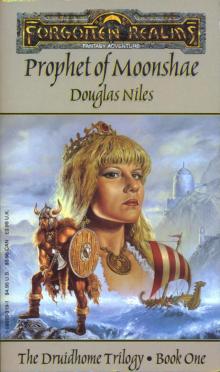 Prophet of Moonshae tdt-1
Prophet of Moonshae tdt-1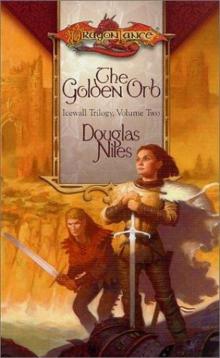 The Golden Orb i-2
The Golden Orb i-2